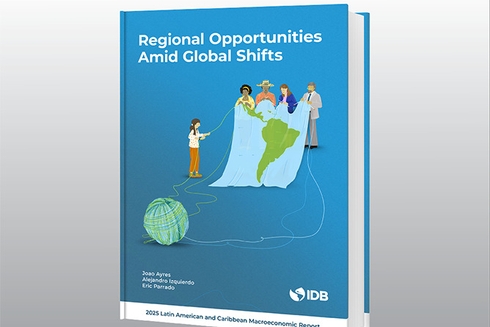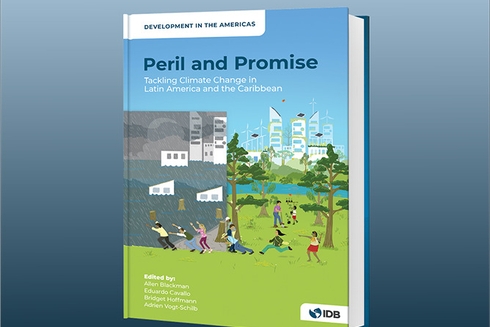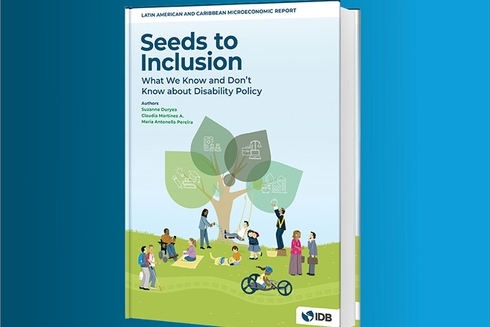The Research Department generates innovative ideas that support the strategic policy agenda of the IDB and its member countries to achieve inclusive and sustainable economic and social development in Latin America and the Caribbean. To maximize the impact of its research, we carry out activities that serve as inputs to bank departments, governments, the academic community and public opinion in the region.
We advise management on economic and development issues, conducts research and analysis on macro- and microeconomic trends, and oversees development of the IDB’s quantitative and analytical databases. It dons a team of researchers with excellent academic credentials, superior research and policymaking experience, and expertise in different areas.

- Latin America and the Caribbean has achieved a series of milestones in the past years. Growth rates have returned to long-term averages, inflation has largely been contained, countries have taken steps toward fiscal consolidation, and unemployment rates are historically low.
- However, substantial risks remain, as the region navigates global trade fragmentation, financial market volatility, and uncertainty surrounding economic policies in the world’s major economies. The geopolitical realignment of trade and investment patterns offers countries an opening to capitalize on nearshoring and regional integration.
- To seize these opportunities, governments must focus on enhancing productivity, strengthening institutional frameworks, improving human capital, and investing in critical infrastructure.

- Climate change is both a challenge and an opportunity for Latin America and the Caribbean. Adaptation to climate change is key to the region's development. Investing in resilient infrastructure, social protection and sustainable agriculture enables countries to reduce climate impacts while strengthening their economies and improving quality of life.
- Achieving net-zero emissions by 2050 could bring significant economic benefits—up to $2.7 trillion—especially through major changes in agriculture, forestry, and land use.
- A fair, just transition requires thoughtful policies and strong public support, balancing benefits across communities to ensure that all sectors and citizens can adapt and thrive.

- Reliable disability data and evidence on policy effectiveness are essential to enhance inclusion in Latin America and the Caribbean. Current studies reveal nuanced realities in education, healthcare, labor markets, and social protection.
- People with disabilities experience significant challenges, such as lower formal employment rates, higher health expenses, and income insecurity. Aging populations are expected to increase disability prevalence, particularly among women.
- Inclusive education, vocational rehabilitation, and antidiscrimination policies show potential but require further evaluation. Research should focus on education, health, and social protection to improve effective strategies.

Despite comprising less than 1% of all firms worldwide, multinational firms, companies that operate across multiple countries, drive roughly half of all international trade, contribute one-third of global output and GDP, and provide a quarter of global employment.

In 2012, we published a study showing that an ambitious and expensive program involving the disbursement of free laptops to primary school students generated few academic gains after 15 months of laptop exposure.

Brazil’s Ministry of Labor does not take labor informality lightly, carrying out inspections and cracking down on the many businesses that hire workers “off the books.”









